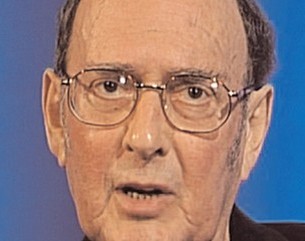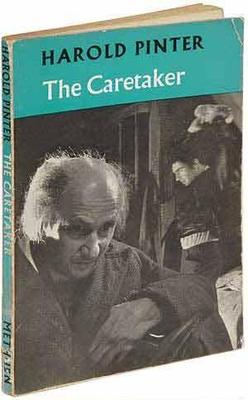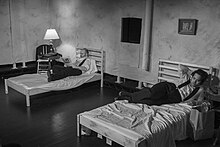
Harold Pinter was a British playwright, screenwriter, director and actor. A Nobel Prize winner, Pinter was one of the most influential modern British dramatists with a writing career that spanned more than 50 years. His best-known plays include The Birthday Party (1957), The Homecoming (1964) and Betrayal (1978), each of which he adapted for the screen. His screenplay adaptations of others' works include The Servant (1963), The Go-Between (1971), The French Lieutenant's Woman (1981), The Trial (1993) and Sleuth (2007). He also directed or acted in radio, stage, television and film productions of his own and others' works.

Ada Brand Thomson, known professionally as Vivien Merchant, was an English actress. She began her career in 1942, and became known for dramatic roles on stage and in films. In 1956 she married the playwright Harold Pinter and performed in many of his plays.

Jason Isaacs is an English actor perhaps best known for his portrayal of Lucius Malfoy in the Harry Potter film series (2002–2011). His other film roles include Colonel William Tavington in The Patriot (2000), Michael D. Steele in Black Hawk Down (2001), and Captain Hook in Peter Pan (2003).

Simon James Holliday Gray was an English playwright and memoirist who also had a career as a university lecturer in English literature at Queen Mary, University of London, for 20 years. While teaching at Queen Mary, Gray began his writing career as a novelist in 1963 and, during the next 45 years, in addition to five published novels, wrote 40 original stage plays, screenplays, and screen adaptations of his own and others' works for stage, film and television and became well known for the self-deprecating wit characteristic of several volumes of memoirs or diaries.
No Man's Land is a play by Harold Pinter written in 1974 and first produced and published in 1975. Its original production was at the Old Vic theatre in London by the National Theatre on 23 April 1975, and it later transferred to Wyndham's Theatre, July 1975 – January 1976, the Lyttelton Theatre April–May 1976, and New York's Longacre Theatre from October–December 1976. It returned to the Lyttelton from January – February 1977. It is a two-act play.

The Birthday Party (1957) is the first full-length play by Harold Pinter, first published in London by Encore Publishing in 1959. It is one of his best-known and most frequently performed plays.

Betrayal is a play written by Harold Pinter in 1978. Critically regarded as one of the English playwright's major dramatic works, it features his characteristically economical dialogue, characters' hidden emotions and veiled motivations, and their self-absorbed competitive one-upmanship, face-saving, dishonesty, and (self-) deceptions.

The Caretaker is a drama in three acts by Harold Pinter. Although it was the sixth of his major works for stage and television, this psychological study of the confluence of power, allegiance, innocence, and corruption among two brothers and a tramp, became Pinter's first significant commercial success. It premiered at the Arts Theatre Club in London's West End on 27 April 1960 and transferred to the Duchess Theatre the following month, where it ran for 444 performances before departing London for Broadway. In 1963, a film version of the play based on Pinter's unpublished screenplay was directed by Clive Donner. The movie starred Alan Bates as Mick and Donald Pleasence as Davies in their original stage roles, while Robert Shaw replaced Peter Woodthorpe as Aston. First published by both Encore Publishing and Eyre Methuen in 1960, The Caretaker remains one of Pinter's most celebrated and oft-performed plays.

The Homecoming is a two-act play written in 1964 by Harold Pinter and first published in 1965. Its premières in London (1965) and New York (1967) were both directed by Sir Peter Hall. The original Broadway production won the 1967 Tony Award for Best Play. Its 40th-anniversary Broadway production at the Cort Theatre was nominated for a 2008 Tony Award for "Best Revival of a Play".
The Room is Harold Pinter's first play, written and first produced in 1957. Considered by critics the earliest example of Pinter's "comedy of menace", this play has strong similarities to Pinter's second play, The Birthday Party, including features considered hallmarks of Pinter's early work and of the so-called Pinteresque: dialogue that is comically familiar and yet disturbingly unfamiliar, simultaneously or alternatingly both mundane and frightening; subtle yet contradictory and ambiguous characterizations; a comic yet menacing mood characteristic of mid-twentieth-century English tragicomedy; a plot featuring reversals and surprises that can be both funny and emotionally moving; and an unconventional ending that leaves at least some questions unresolved.

Butley is a play by Simon Gray set in the office of an English lecturer at a university in London, England. The title character, a T. S. Eliot scholar, is an alcoholic who loses his wife and his close friend and colleague – and possibly male lover – on the same day. The action of the dark comedy takes place over several hours on the same day during which he bullies students, friends and colleagues while falling apart at the seams. The play won the 1971 Evening Standard Award for Best Play.

Tea Party is a play written by Harold Pinter, which Pinter adapted from his own 1963 short story of the same title. As a screenplay, it was commissioned by the European Broadcasting Union, directed by Charles Jarrott, and first transmitted on BBC Television in the programme The Largest Theatre in the World on 25 March 1965. It was first produced on stage in October 1968 as part of a double bill with Pinter's play The Basement.
Bibliography for Harold Pinter is a list of selected published primary works, productions, secondary sources, and other resources related to English playwright Harold Pinter (1930–2008), the 2005 Nobel Laureate in Literature, who was also a screenwriter, actor, director, poet, author, and political activist. It lists works by and works about him, and it serves as the Bibliography for the main article on Harold Pinter and for several articles relating to him and his works.
Comedy of menace is the body of plays written by David Campton, Nigel Dennis, N. F. Simpson, and Harold Pinter. The term was coined by drama critic Irving Wardle, who borrowed it from the subtitle of Campton's play The Lunatic View: A Comedy of Menace, in reviewing Pinter's and Campton's plays in Encore in 1958.
Remembrance of Things Past is the 2000 collaborative stage adaptation by Harold Pinter and director Di Trevis of Harold Pinter's as-yet unproduced The Proust Screenplay (1977), a screen adaptation of À la recherche du temps perdu, the 1913–1927 seven-volume novel by Marcel Proust.

A dumbwaiter is a small freight elevator or lift intended to carry food. Dumbwaiters found within modern structures, including both commercial, public and private buildings, are often connected between multiple floors. When installed in restaurants, schools, hospitals, retirement homes or private homes, they generally terminate in a kitchen.
The Basement is a television play by Harold Pinter. It was written first as a screenplay for a film, then revised for television and broadcast on 20 February 1967.
Jamie Lloyd is a British director, best known for his work with his eponymous theatre company. He is known for his modern minimalism and expressionist directorial style. He is a proponent of affordable theatre for young and diverse audiences, and has been praised as "redefining West End theatre". The Daily Telegraph critic Dominic Cavendish wrote of Lloyd, "Few directors have Lloyd’s ability to transport us to the upper echelons of theatrical pleasure."

The Harold Pinter Theatre, known as the Comedy Theatre until 2011, is a West End theatre, and opened on Panton Street in the City of Westminster, on 15 October 1881, as the Royal Comedy Theatre. It was designed by Thomas Verity and built in just six months in painted (stucco) stone and brick. By 1884 it was known as simply the Comedy Theatre. In the mid-1950s the theatre underwent major reconstruction and re-opened in December 1955; the auditorium remains essentially that of 1881, with three tiers of horseshoe-shaped balconies.












